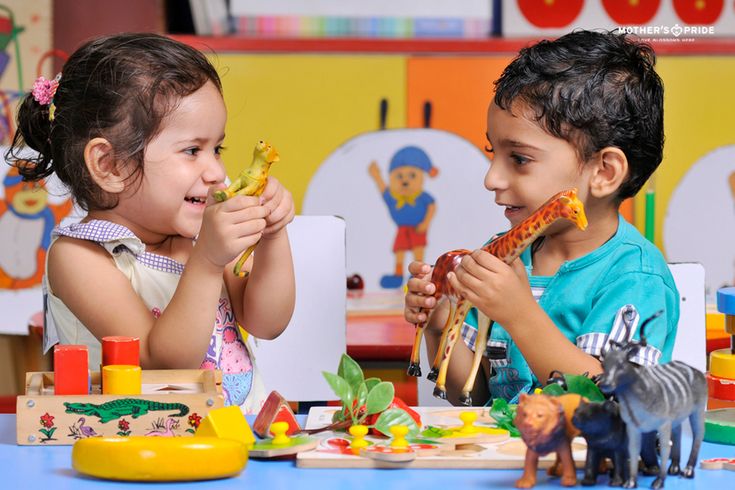Imagine a world where every block becomes a tall building, every doll is a best friend, and every cardboard box is a spaceship ready to explore. This is the magical world of childhood play, where imagination thrives and every moment is a new adventure. As parents, you have a special chance to nourish and support this world. Being involved in play is not only enjoyable but also an effective tool for learning and growth. Let's see how you can improve and support your children's play at all stages, allowing them build a bright and imaginative future.
Just picture the excitement in a baby's eyes as they discover soft blocks for the first time, or the giggles of a toddler pretending to sip from a toy cup. These moments, filled with innocence and exploration, are where memories are made.
We'll share easy ways for you as a parent to enhance your child's play at every age. Let's spark imagination, foster creativity, and build a bright future together through the wonder of pretend and play.
Supporting Exploratory Play (6-12 months)
Your little one has started discovering the world. They're like tiny explorers, eagerly absorbing every sight and sound with boundless curiosity. Here are some simple yet effective ways to nurture their exploration :
Pick the Right Toys: Choose soft blocks, rattles, and balls with different textures. These toys are safe and fun for your baby. These toys stimulate sensory experiences and encourage motor skill development.
Create a Safe Environment: Make sure the area where your baby plays is safe. Take away anything small they could put in their mouth. This keeps them safe while they explore freely.
Play Together: Spend time playing with your baby. For instance, Sit with your baby and shake a rattle. Encourage them to copy you. Interactive play improves your baby's learning process and helps to strengthen your relationship with them.
Talk About What's Happening: Tell your baby what they're doing. For example, say, "You're holding the rattle! Shake it and listen to the sound!" Talking helps with language development and understanding things better.
Give Gentle Guidance: Show off new ways/ideas to play with a toy. If your baby is playing with blocks, show them how to stack them They can learn new ways to engage with their toys .
Encouraging Early Pretend Play (12-18 months)
Now that your child is between 12 to 18 months old and is beginning to explore the magical world of imagination. Here are some ways to nurture their budding imagination:
Providing Simple Props: Give your toddler simple items for pretend play, like toy cups, plates, cars, or dolls. Simple props enhance their imagination and inspiring your child to create their own make-believe scenarios.
Modeling Pretend Actions: Show your child how to play imaginatively by pretending yourself. For example, pretend to drink from an empty cup or make animal sounds while playing with toy animals. Through observation, they learn how to use their imagination in play.
Offering Praise: Encourage your toddler by complimenting their imaginative play. Say something like, "Wow, look at you enjoying your drink from the cup! You're doing great!" Giving them positive reinforcement makes them feel more confident and motivated to play more.
Playing Together: Be a part of your child’s pretend play This helps kids have more enjoyment and engagement with the activity in addition to teaching them how to play. Playing together strengthens your bond and makes learning enjoyable experience.
Fostering Symbolic Play (18 months - 3 years)
Your child's imagination develops rapidly between the ages of 18 months and 3 years old! They are delving into fantastical worlds through the construction of block castles, tea parties with plush animals, and thrilling journeys with toy cars. Here's how
to encourage their creativity throughout this enjoyable phase:
Providing a Variety of Props: Give your child different toys and items that encourage imaginative play, like blocks, dolls, toy kitchen sets, and dress-up clothes. A variety of props keeps their play diverse and engaging.
Joining in the Play: Play with your child and join their pretend scenarios. For example, if they are pretending a block is a phone, you can pretend to call them or ask who they are talking to. Joining in validates their play and enhances their experience.
Offering Suggestions: Help expand their play by suggesting new ideas. For instance, if they are pretending to cook, you can suggest they set up a restaurant or invite their toys for a meal. Suggestions can spark new directions in their imaginative play.
Building on Their Ideas: Follow your child’s lead and build on their imaginative play. This helps them think creatively and keeps the play engaging. Supporting their ideas encourages independent thinking.
Supporting Dramatic Play (3-7 years)
Now that kids aged 3 to 7 are diving into dramatic play, their imaginations are in full swing! They can be gourmet chefs one minute and superheroes the next. Here's how you can make their playtime even more awesome:
Providing Dress-Up Clothes and Props: Give your child dress-up clothes, props, and playsets that inspire them to create stories and scenarios. This could include costumes, toy kitchen sets, doctor kits, or themed playsets. Dress-up and props make dramatic play more immersive and exciting.
Encouraging Cooperation: Help children play together by encouraging them to take turns, share ideas, and work as a team during their pretend play. Cooperative play teaches important social skills and fosters friendships.
Joining in the Play: Sometimes join your child’s play to model how to act out roles and scenarios. This can help expand their imaginative play and make it more fun. Participating in their play shows that you value their creativity.
Conclusion :
Step into the world of childhood play, where imagination rules and every moment is an adventure. When you join your child's playtime, you make it even more exciting.
Whether they're playing dress-up, building forts, or creating make-believe worlds, your participation adds to the fun and helps them learn. So why don't you join in on the fun and discover where their creative mind takes you? Remember every moment of imagination and exploratory time is an opportunity to bond, educate, and make
lifelong memories with your child. Why don't you join in on the fun and discover where their creative mind takes you?









